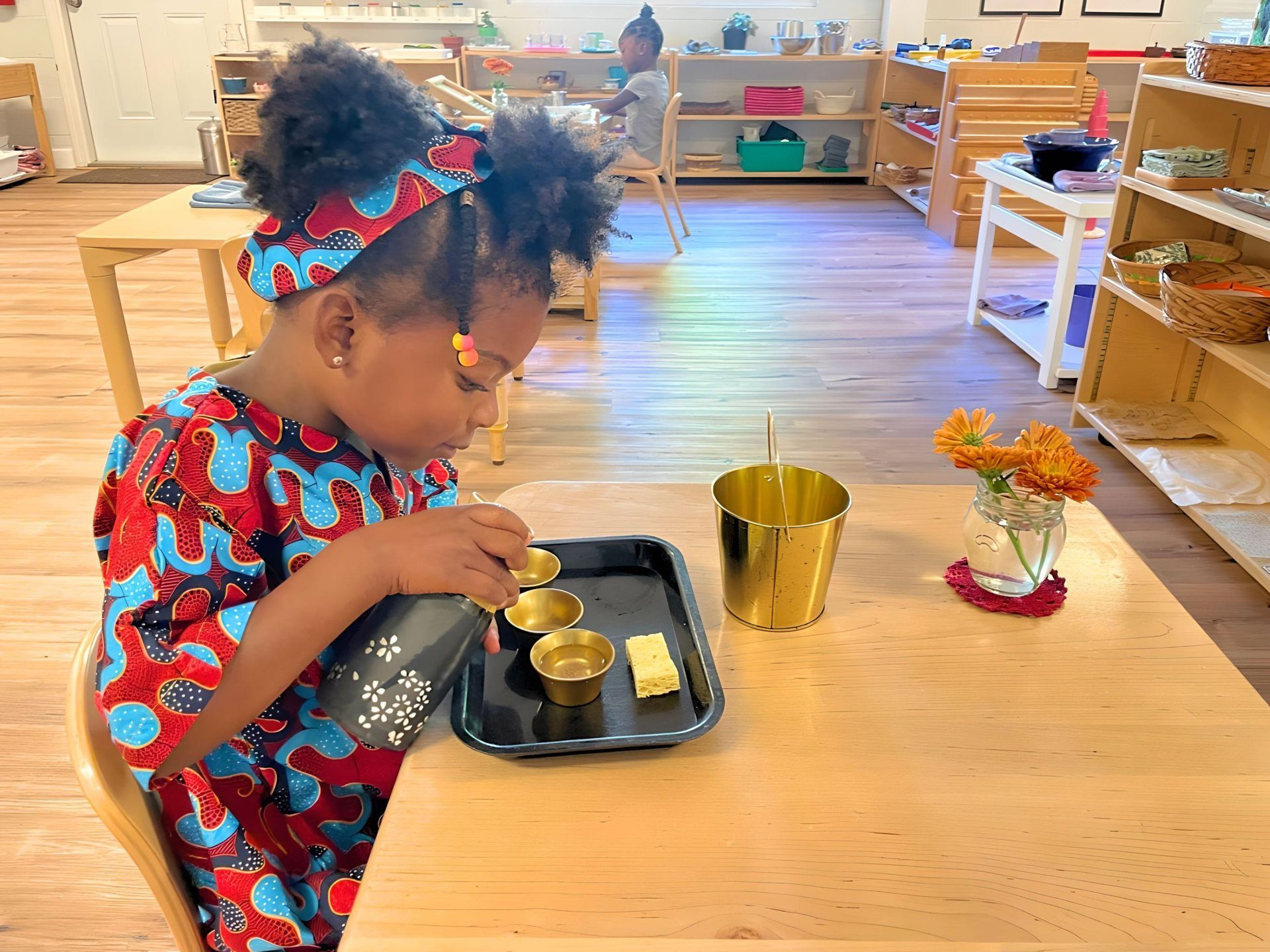Philosophy of Learning
The Core Principles of Montessori's Philosophy of Learning Are:
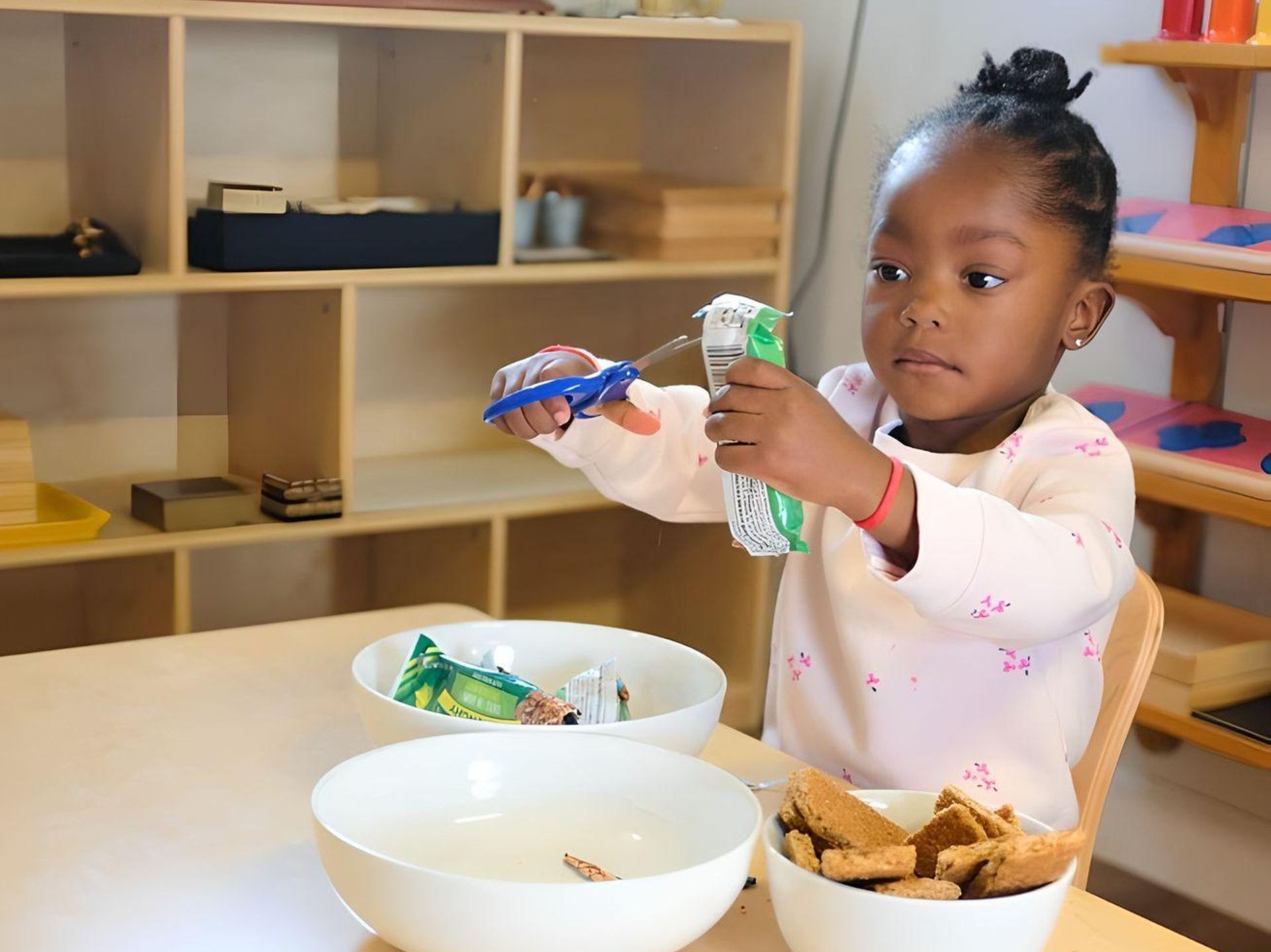
Self-Construction
One of Dr. Montessori’s major contributions to the field of education was her assertion that when children are given freedom to work in a developmentally-appropriate environment, they quite literally build their own personalities and intellects. The trained adult in a Montessori environment is called a “guide,” as opposed to a “teacher,” because his/her job is not to impart knowledge but to link the child to the materials in the environment. It is by actively working with the materials— not by passively listening to a presentation—that your child truly learns!
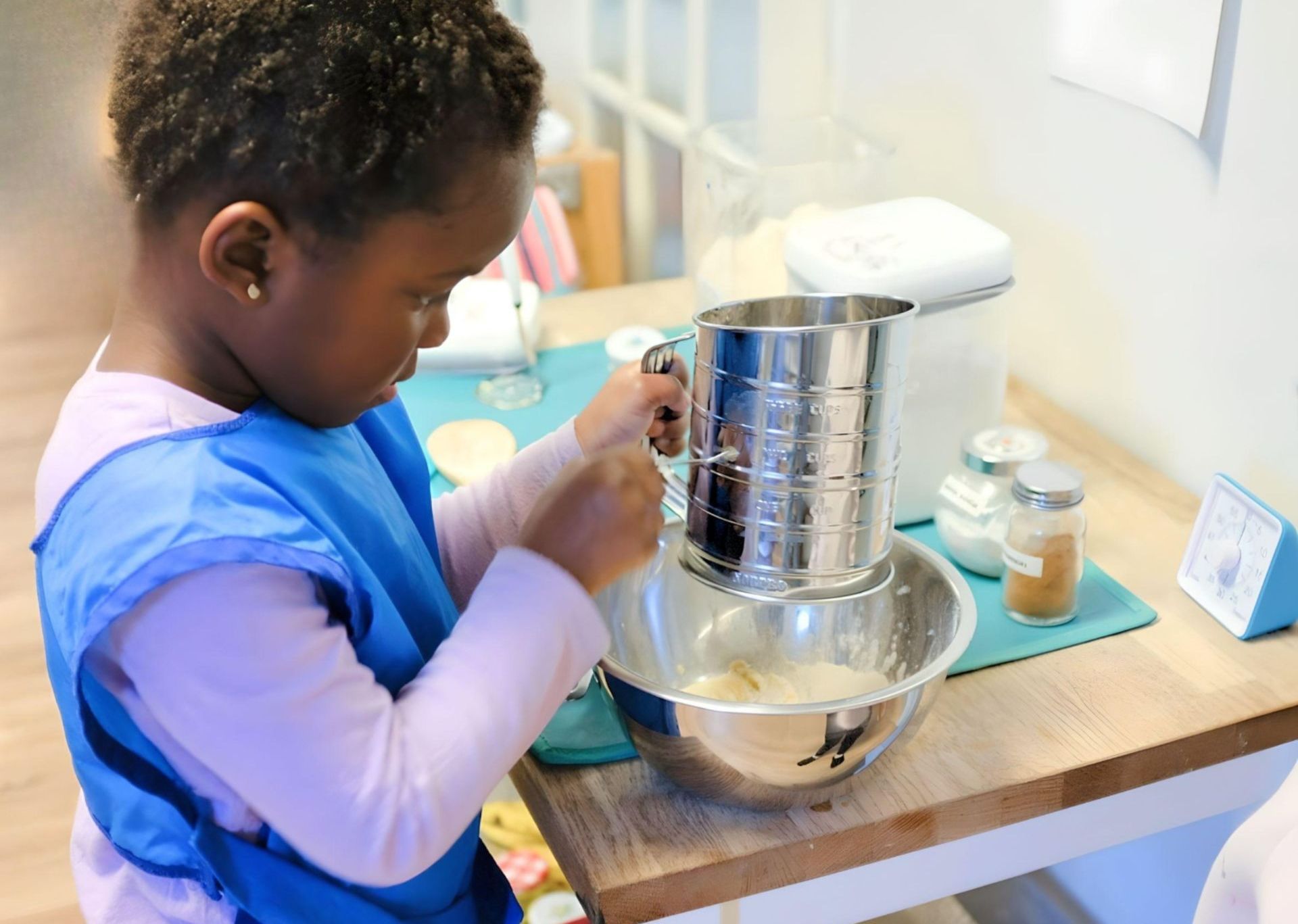
Internal Motivation
We believe that each child is born with an innate desire and capacity to learn. In an environment where children are encouraged to follow their natural interests, external motivators–rewards and punishments–are unnecessary.
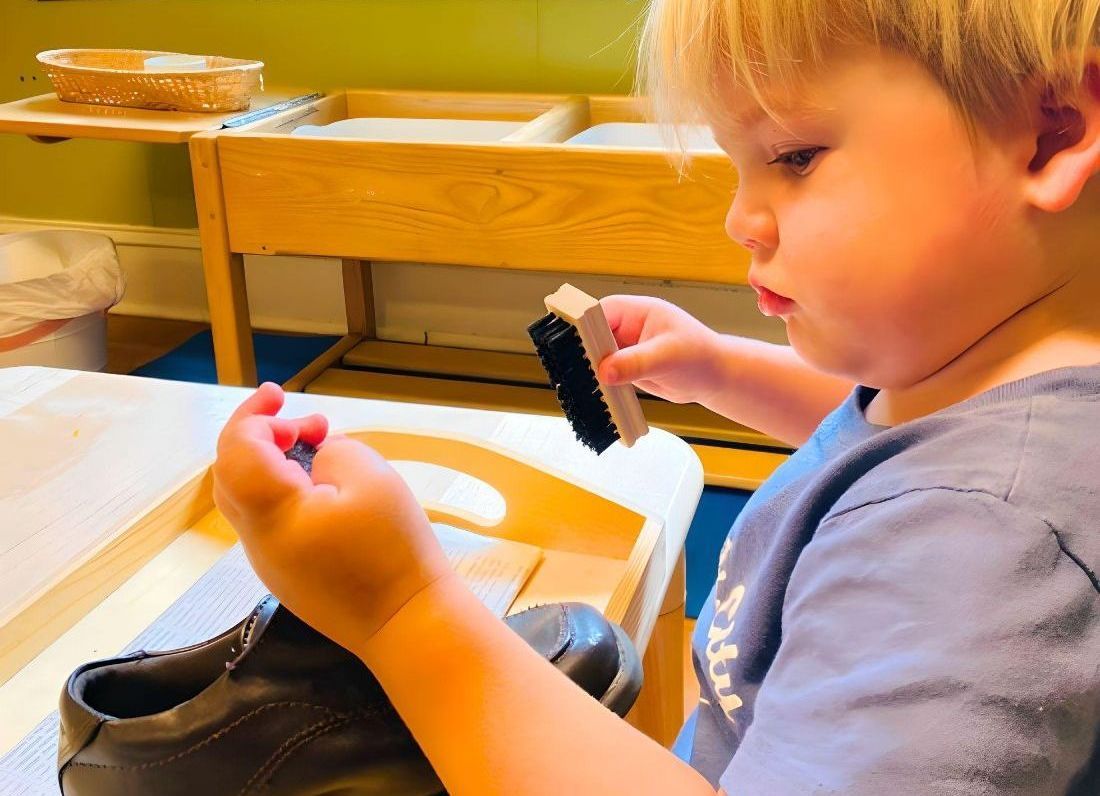
Work
By “work,” Dr. Montessori meant purposeful activity that satisfies the spirit. At Grow Montessori School, our daily schedule is built around two, three-hour work cycles. Through scientific observation, Dr. Montessori discovered that a three-hour, uninterrupted work cycle offers the child the best opportunity for deep concentration. This was a critical discovery, because it is through concentration that the child experiences the integration of mind-body-spirit resulting in contentment and joy. To honor the integrity of your child’s work time, Grow Montessori School does not offer special classes in art, music, or foreign language.
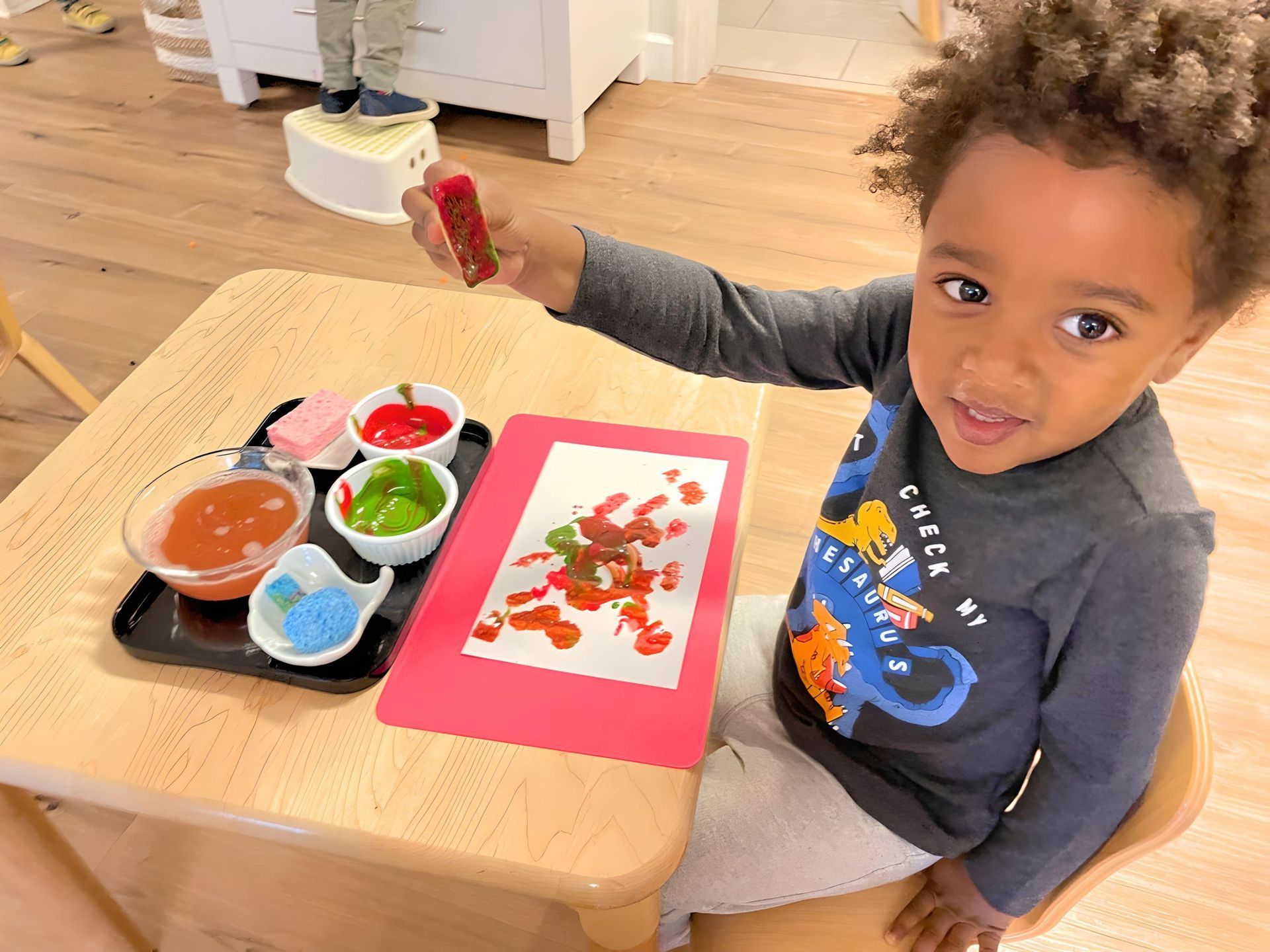
Freedom & Discipline
The staff of Grow Montessori School strives to maintain a positive, fair, and nurturing learning atmosphere at all times. Our approach to classroom management is rooted in Dr. Montessori’s belief that freedom and discipline are inextricably linked. Self-discipline is achieved not by imposing rules but by the development of the child’s will through freely chosen, uninterrupted work.
There are certain freedoms—or “rights”—that belong to every child at Grow Montessori School and are only impacted when natural limits are transgressed. These are:
- The freedom to fulfill one’s personal needs (i.e., hunger, thirst, and toileting).
- The freedom to move about safely and purposefully.
- The freedom to express one’s self.
- The freedom to follow one’s inner guide by choosing one’s work and pursuing that work without interruption or unnecessary help.
These freedoms are linked with natural limits, and the “essence” of all limits is respect—respect for other individuals, for the indoor/outdoor environments, and for the learning community as a whole. Respect for the individual means honoring another child’s work, concentration, and space. Respect for the environment means using materials properly, cleaning up after one’s self, returning materials to the shelf in beautiful condition, and using resources wisely. Respect for the community means acting in ways that are harmonious, safe, generous, and responsible.
When these principles are transgressed, the staff of Grow Montessori School seeks first to empower children to resolve conflicts themselves. The staff will offer redirection and extra support as necessary. We will respond in ways that are gentle, but firm—without shame or embarrassment. We also take a proactive approach to discipline by offering regular Grace and Courtesy presentations, which are an important part of Dr. Montessori’s pedagogy.
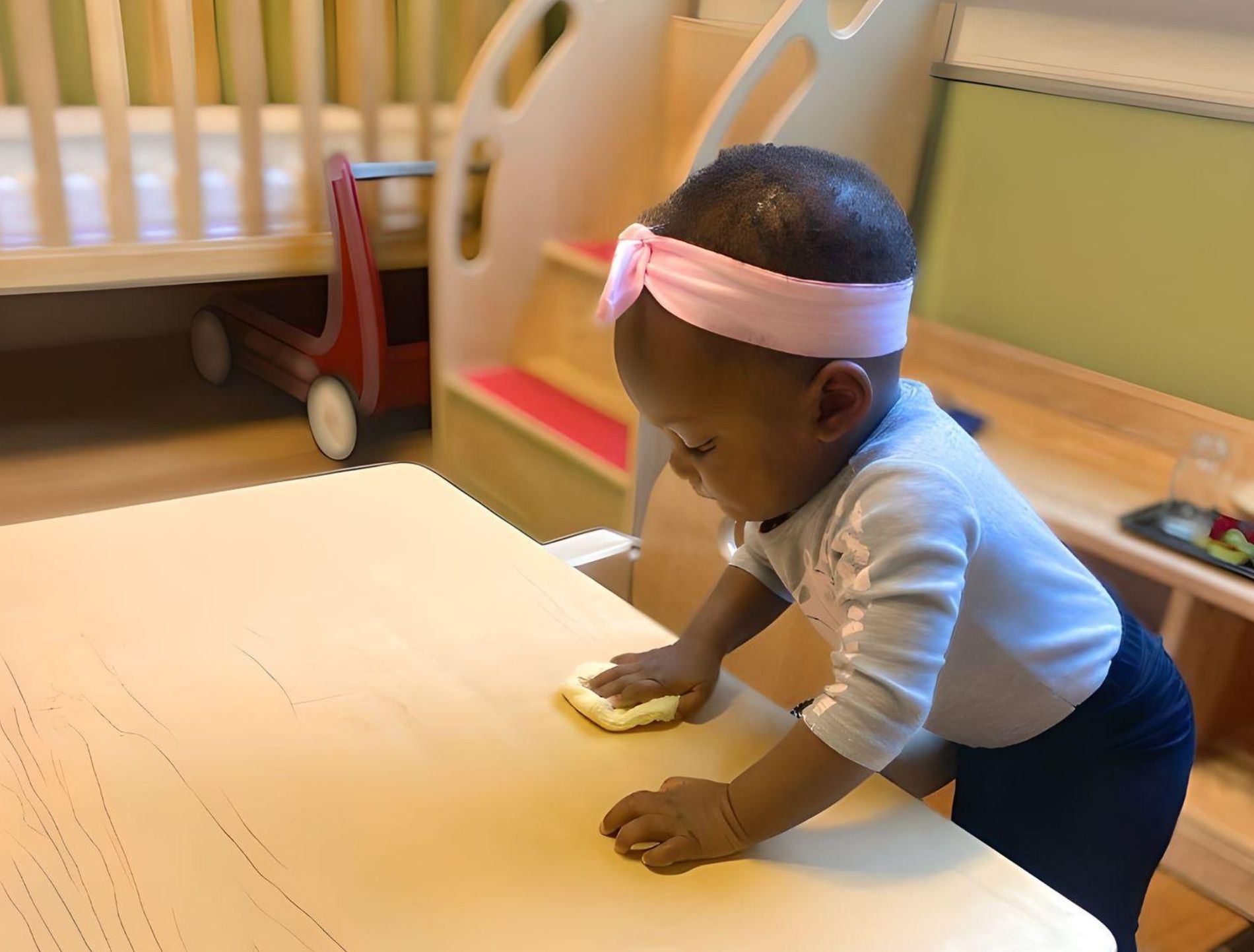
Independence
Dr. Montessori believed that the cry of every child is, “Help me to do it myself!” At Grow Montessori School, children’s natural drive toward independence is fostered most notably in the Practical Life area, where they will acquire many of the skills necessary to care for themselves, to care for the environment, and to handle themselves with grace and courtesy in a variety of social situations. Beyond the Practical Life area, we feed your child’s hunger for independence by supporting freedom of choice. Our goal for your child is that he/she becomes a curious, joyful, and self-directed learner. To that end, we do not assign work. Your child is free to choose a material (provided he/she has received a presentation on that material) and to work with that material for as long as necessary. Because of the high value we place on fostering independence, child-adult ratios in Montessori classrooms differ from those in more traditional preschools. AMI/USA recommends two adults per twenty-eight to thirty-five children. Too much adult presence in the classroom can stifle your child’s independence.
Beauty
At Grow Montessori School, your child will be surrounded by beauty each day. Dr. Montessori believed that beauty is an essential quality in a learning environment, because a cheerful, clean, well-ordered space honors the child’s dignity and invites exploration and work. In a Montessori environment, you will find not only expertly-crafted developmental materials but cloth napkins, ceramic dishes, glass vases, lovely fabrics and tapestries, cultural artifacts, and reproductions of master works of art.
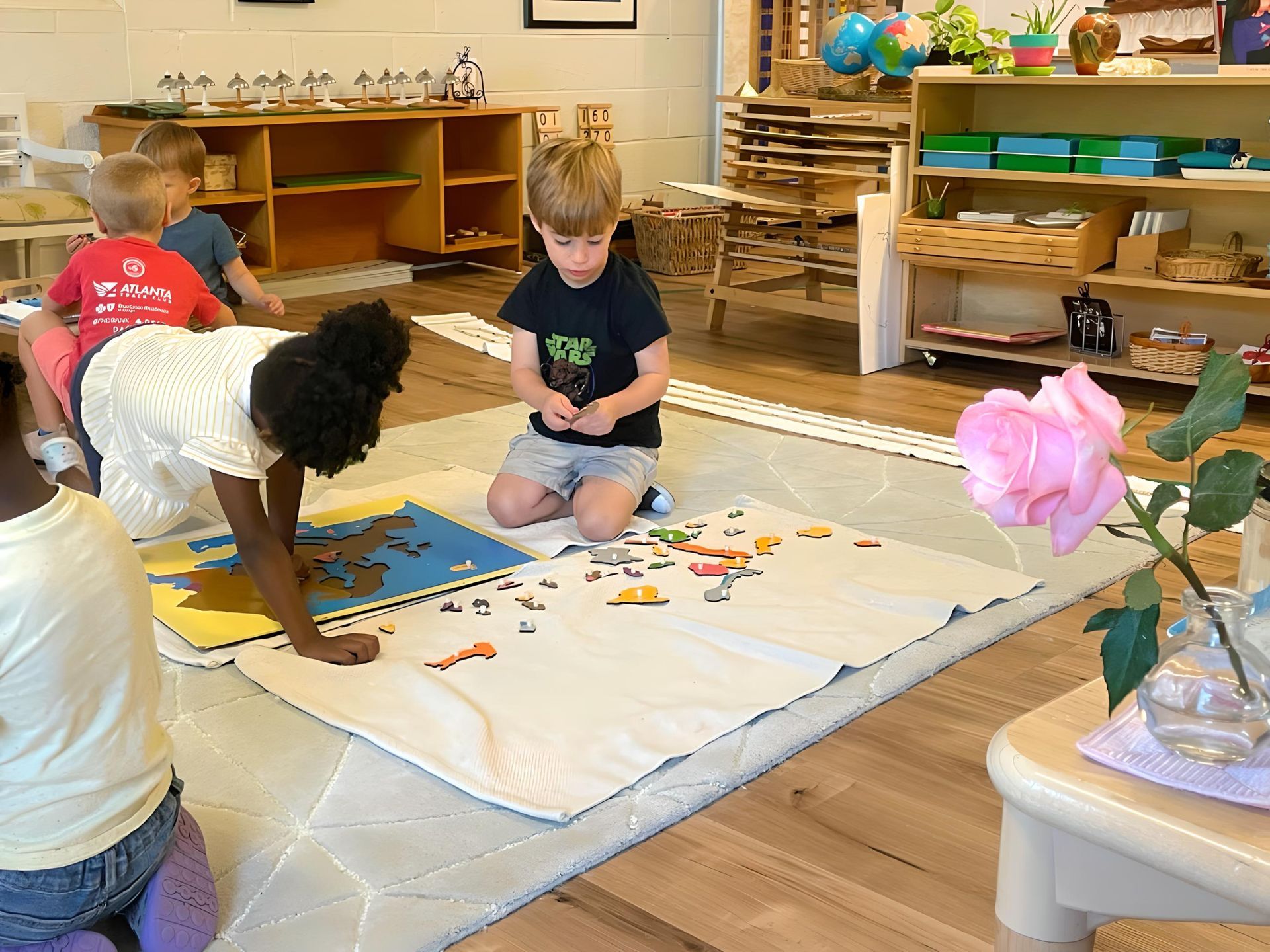
Mixed-Aged Classes
In a Montessori primary classroom, children ages 2½ through 6 work together harmoniously. Younger children develop a healthy, genuine admiration for older members of the community, and older children enjoy the privilege of teaching and assisting their younger peers. In her work, Dr. Montessori found that younger children were inspired by, not envious of, their older peers; they trusted that, with time and practice, they would rise to the same level. Similarly, she found that older children—rather than exhibiting contempt for or condescension toward their younger peers—graciously took on the roles of protectors and exemplars. In The Absorbent Mind, Dr. Montessori writes,
“It is hard to believe how deep this atmosphere of protection and admiration becomes in practice. The class gets to be a group cemented by affection. Finally, the children come to know one another’s characters and to have a reciprocal feeling for each other’s work” (p. 206).
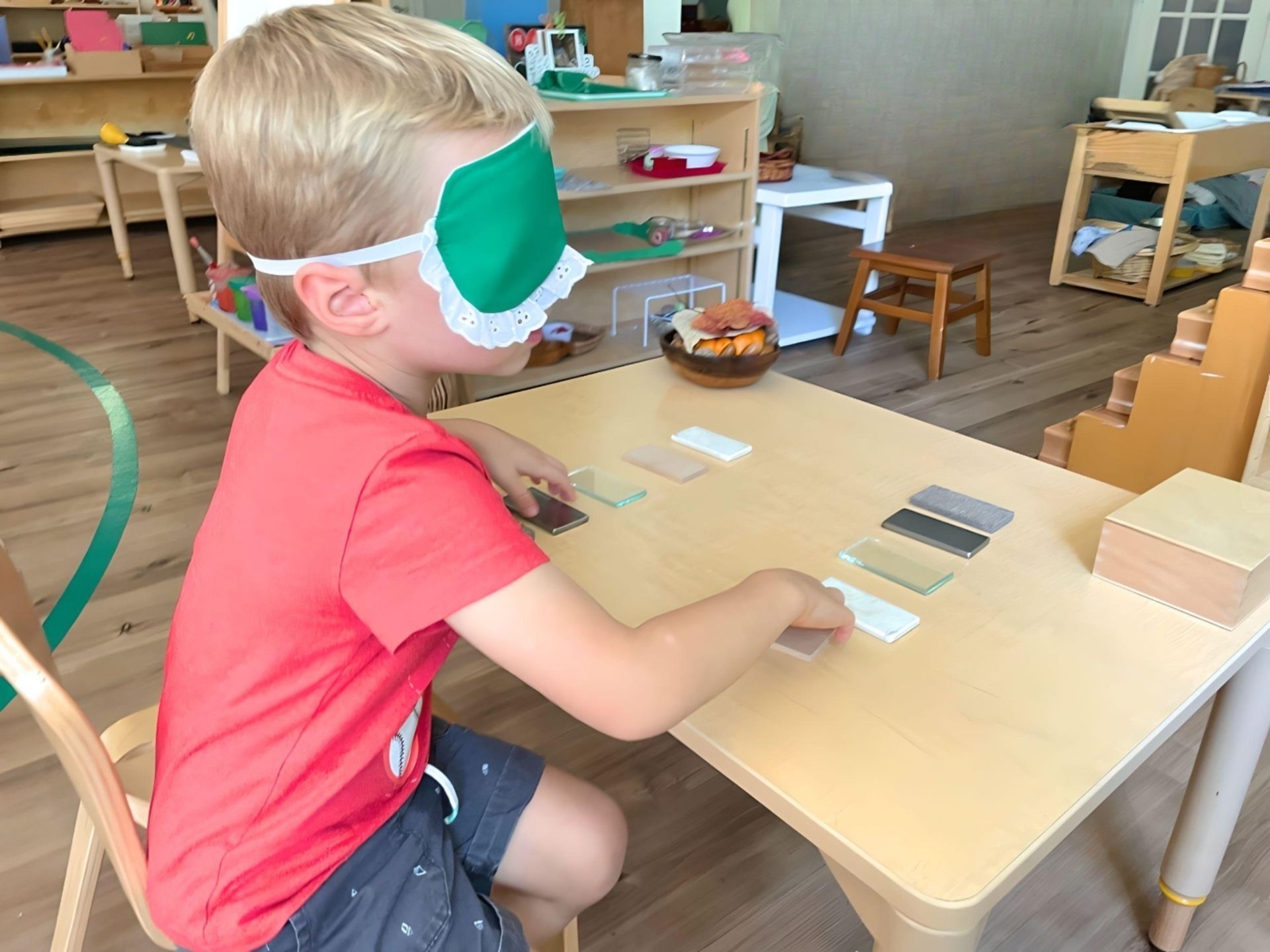
Friendliness with Error
At Grow Montessori School, we want each child to become “friendly with error.” Rather than looking at mistakes as a sign of failure, children should experience mistakes as an opportunity for further exploration, repetition, and refinement. We believe that repetition builds competence, and competence builds confidence!
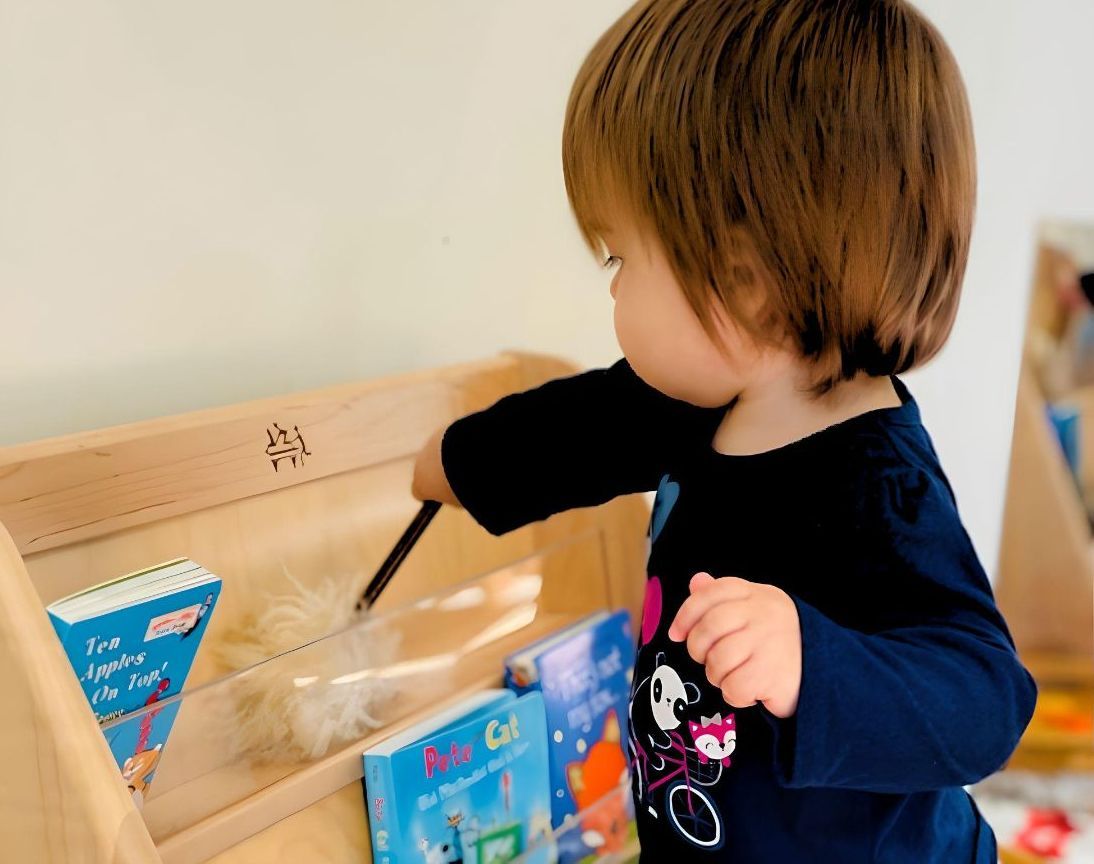
Home-Like Environment
Dr. Montessori intentionally chose the term casa, or “children’s home,” for the special environment she created in order to distinguish it from a traditional school setting. The casa is designed and furnished to make each child feel welcome, secure, and empowered. In fact, it was Dr. Montessori who pioneered the construction of child-sized furniture, which is now a standard feature of preschools and daycare centers everywhere.
At Grow Montessori School, you will find light-weight, moveable furniture as well as floor mats. In place of bright colors and plastic toys, you will find subtle tones, organic materials, and natural light. The schedule of our day resembles the natural rhythms of family life—time for work, time for meals, and time for rest. Each day, your child will participate in the work of “making home”—setting the table, washing dishes, sweeping, folding laundry, watering plants, etc. The staff of Grow Montessori School works alongside the community of children to make our environment a home away from home.

